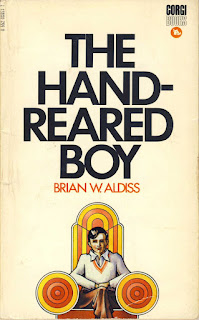Rating: Admirable
I've been fascinated by werewolves since childhood. Despite watching most of the modern-day werewolf movies made since the 1980s I've never read any werewolf horror, in fact Wolf Land is the first horror novel I've read since I was a teenager in the 1980s. Horror is not really my thing, but in the spirit of branching out I grabbed a copy of Wolf Land when it was discarded by my library. I have to say that I was pleasantly surprised, as Wolf Land is a well written decent into gruesome and gory werewolf mayhem. The novel is nicely set up with the introduction of the principle protagonists who are on their way to a bonfire party prior to a ten-year school reunion. We meet Duane (nicknamed Short-Pump), Savannah, Glen, Mike and the loser of the group, Weezer. They all have their issues, regrets and angsts, mostly around relationships, but for Mike, the big-time baseball player who went off to the big leagues and failed, there's bigger regrets, but that all pales into insignificance when a weird guy turns up to the bonfire and transforms into a werewolf, an impressive one at that. The ensuing carnage is entertaining and ticks all of the werewolf thrill requirements.
Janz handles the balance between character development and horror action well, by the time of the first attacks you feel like you know enough about the characters to care about them before they either die or become horribly injured. The actual horror elements are intense, detailed and gory, but there is enough well played out psychological exploration of the characters in the aftermath of the initial attack to make things more interesting. Some of them, of course, are destined to become werewolves themselves and the way this plays out differently among the group of friends is engaging and satisfying. There are some intense transformation and attack scenes that would satisfy any werewolf fans and the werewolves themselves are massive creatures. Also the usual theme of werewolf origin is handled without too much cliche and enough variation to create something new. However I'm marking the novel down a bit for two reasons, firstly one of the female characters, Joyce, is a librarian, but is a bit of a cliche, she's inhibited, a bit plain and does her research, hmmm. The second is that when things really get going in the latter third of the novel the carnage is unrelenting, getting more and more extreme. No doubt horror fans love and demand this level of gory action, but after a while it becomes a bit cartoonish and loses some of its impact, there's only so many times you can cringe at another eye being gouged or scenes of slaughter with intestines and heads everywhere. Still, Wolf Land was a fun ride and great holiday reading.






